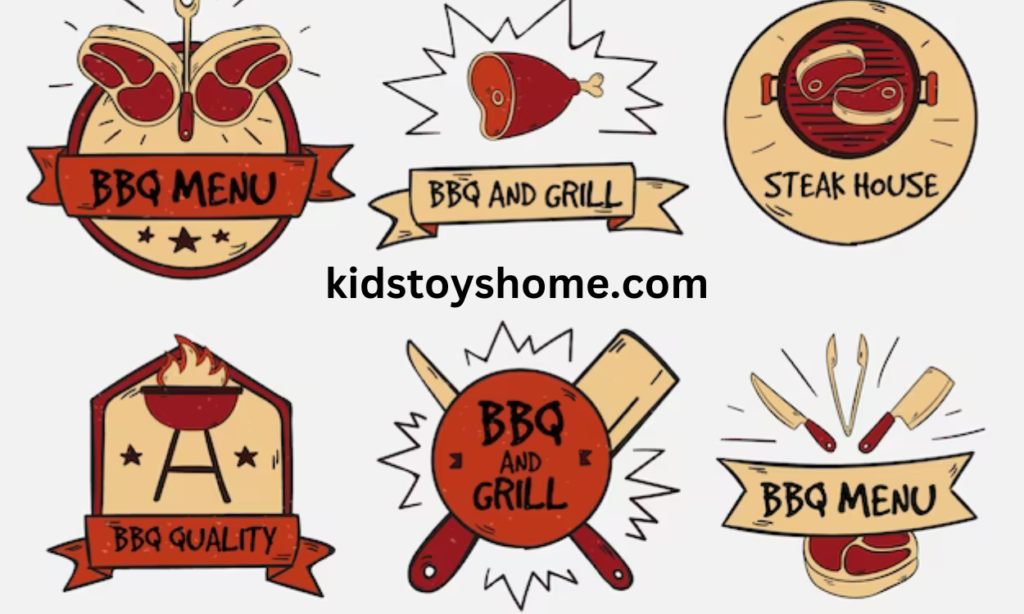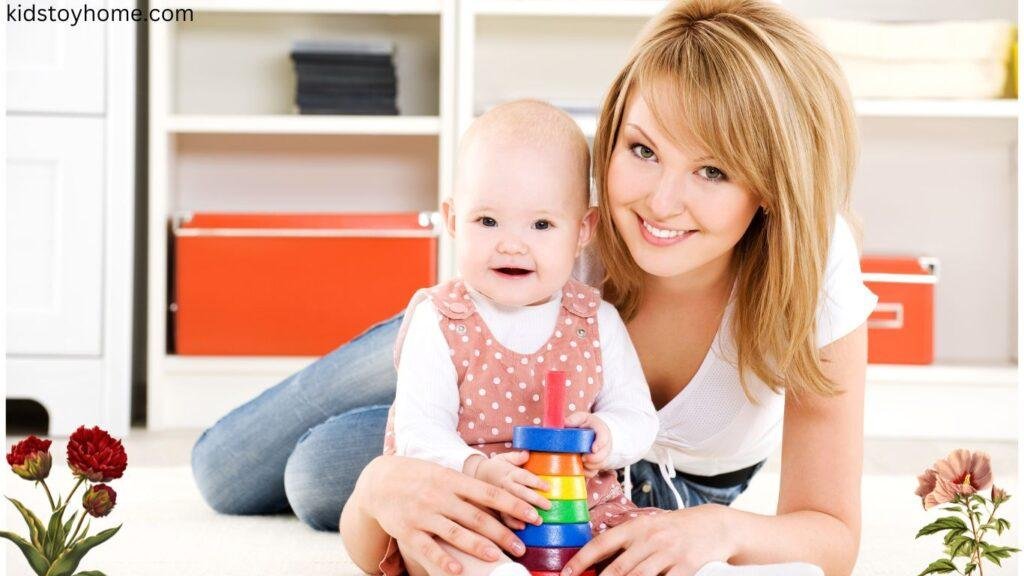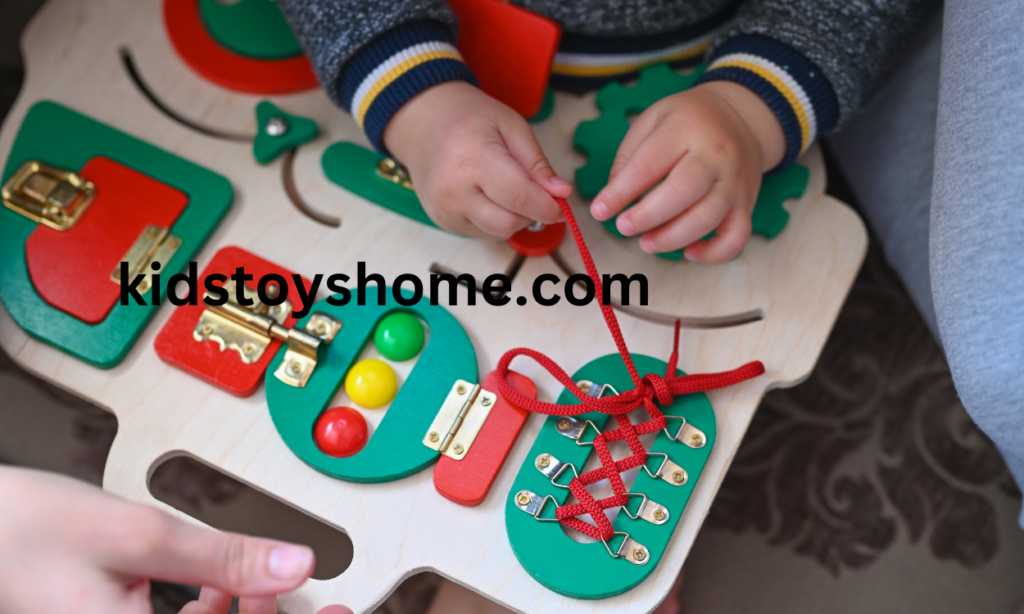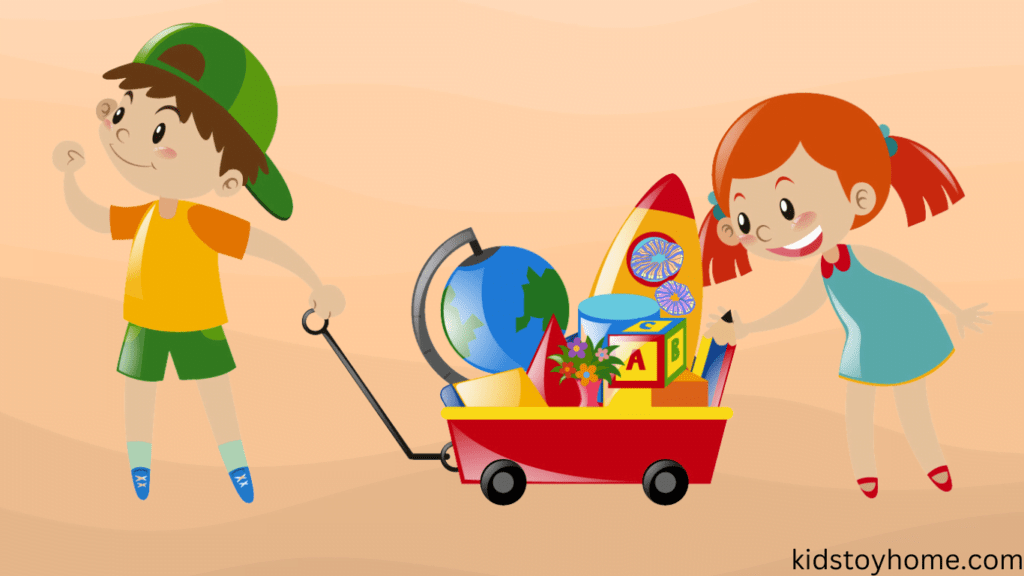Since children develop at different rates, it can be challenging to tell if an 18-month-old child is gifted. Early signs of giftedness might not always be apparent.
However, there are some signs that parents may look out for. Some of these include unusual alertness or concentration for their age, reaching developmental milestones early, such as walking or talking, and increased curiosity and interest in exploring their world.
Other traits that may be exhibited by gifted children include an excellent memory, the ability to recognize patterns, and advanced problem-solving skills.
While these are exciting signs, one should always give them an enabling and encouraging environment whereby all children find room to thrive according to their pace. A pediatrician or any other expert in child development can also offer much in terms of guidance or understanding a unique talent in a child.
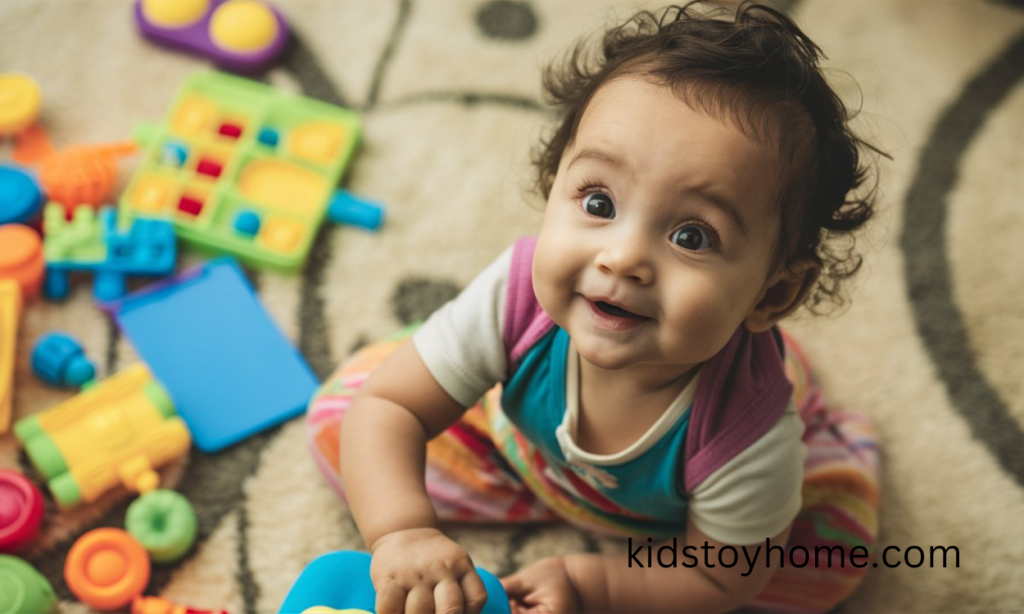
What Is Gifted Children?
A gifted child shows aptitude and competence well above average in one or more domains, such as intellectual, creative, artistic, or leadership capacities. Such children show traits and behaviors that are outstanding compared to their age-mates and manifest in precocious cognitive development and enhanced problem-solving ability.
Some common traits of gifted children are intense curiosity about the world, passion for a subject, remarkable memory, and the ability to learn quickly and process information. Moreover, children tend to express language skill development and an unusually different abstract thought process, which can be seen in complex questions they formulate and answer from an early age.
A gifted child’s behaviors can range from increased sensitivity to focused efforts on tasks, coupled with perfectionism. They may reveal a high energy level, creativity, and different ways of solving problems. Knowing these features can help better organize educational support and develop their potential optimally.
Different Children Hold Different Milestone Capacity
Gifted babies frequently achieve physical milestones ahead of their peers. This might involve holding their head up, rolling over, crawling, or walking. They exhibit superior coordination and balance, highlighting advanced motor skills.
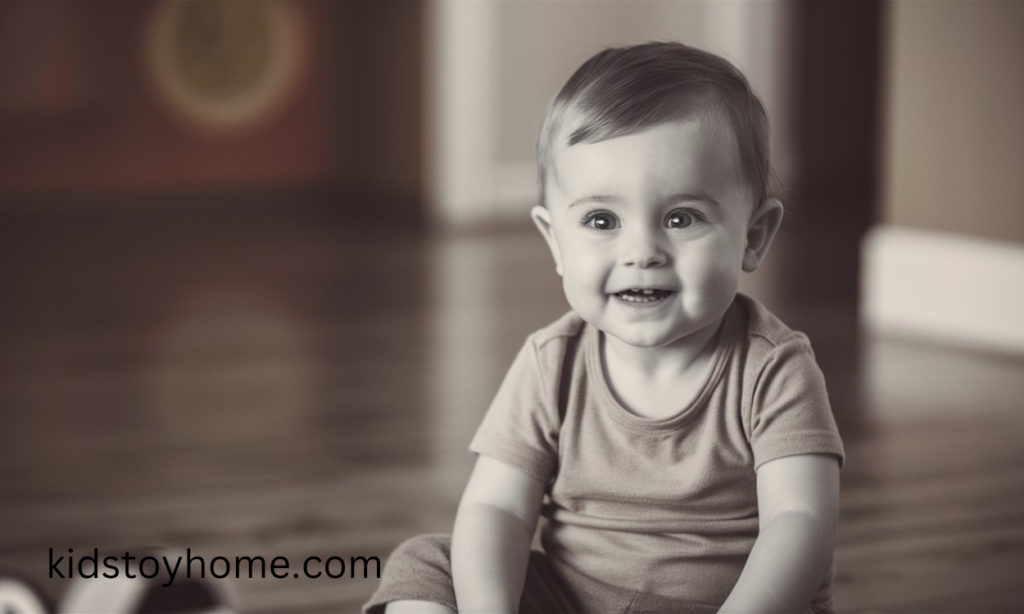
First-Year Milestones For Our Gifted Child
Birth to Twelve Months
- Early Physical Milestones: Sitting up, crawling, or walking ahead of typical timelines.
- Early Interest in Surroundings: Showing a keen interest in their environment.
- Strong Memory Recall: Demonstrating a strong ability to remember people, places, and objects.
- Intense Focus: Ability to concentrate intently on tasks or objects.
- Rapid Language Acquisition: Speaking words or even short sentences before their first birthday.
- Documentation: Keeping track of these milestones to gain insights into a child’s unique developmental journey.
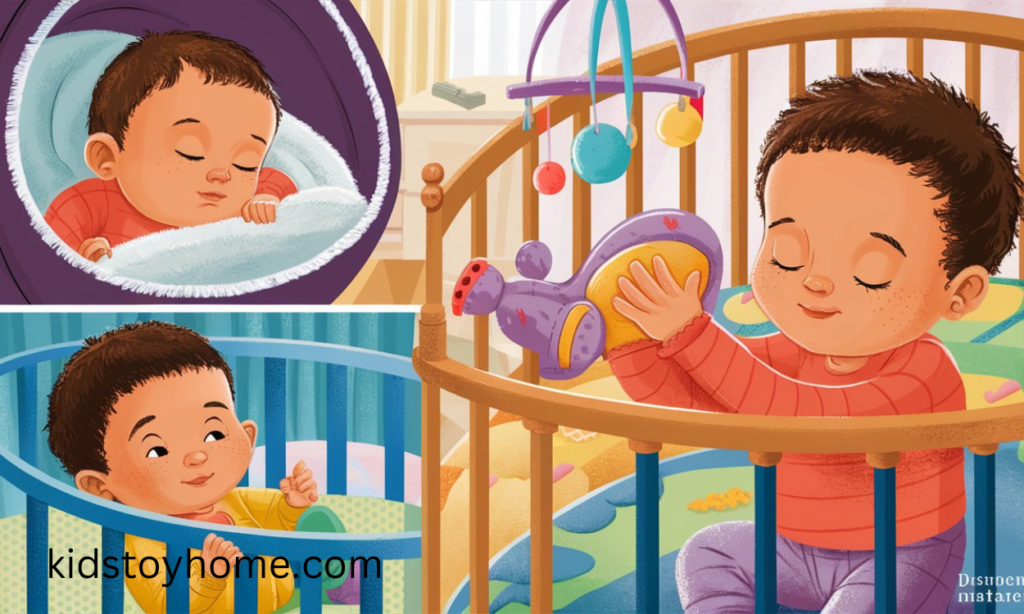
18 Month Milestones
At 18 months, gifted children may continue to display advanced abilities beyond the standard developmental milestones. Some of these milestones may include:
- Advanced Language Skills: At this stage, gifted toddlers might possess a vocabulary far exceeding the norm. They may be able to name a variety of objects, people, and actions and even form simple sentences.
- Complex Problem-Solving Skills: An 18-month-old gifted child might demonstrate an ability to solve problems that typically require the cognition of older children. This could include figuring out basic puzzles or understanding how objects fit together.
- Early Reading Skills: Some exceptionally gifted children might show the ability to recognize letters or even words, demonstrating an early interest in reading.
- Heightened Curiosity: Highly curious, these children might ask “why” often and show a deep interest in exploring their environment. This curiosity is often a driving force behind their learning and interaction.
- Enhanced Motor Skills: Gifted toddlers might show advanced motor skills, such as running, climbing, or showing more refined hand-eye coordination than expected for their age.
- Social and Emotional Awareness: They might exhibit an increased understanding of social interactions and display empathy, recognizing and responding to the emotions of others in complex ways.

19 Month Milestones
At 19 months, gifted children may continue to advance rapidly, showing remarkable development in various areas. Some of the milestones to look for include:
- Advanced Language Use: By this age, gifted children might engage in more complex sentences and have a growing vocabulary. They may also enjoy storytelling and can follow more intricate instructions.
- Innovative Play: Engaging in creative and imaginative play is common, with these children often inventing their own games, scenarios, and using toys in unconventional ways.
- Keen Observation: A heightened sense of observation is noticeable. They may notice small details in their environment that others might overlook and can recall them later.
- Independence in Tasks: A strong desire to perform tasks independently may emerge, from dressing themselves to feeding, showing an advanced level of self-sufficiency.
- Sophisticated Problem Solving: Their problem-solving abilities become even more sophisticated, often figuring out how to use tools or objects to achieve a goal.
- Emotional Sensitivity: Increased emotional sensitivity and empathy toward others might be evident, as well as understanding and reacting to the emotions of those around them in more nuanced ways than typical for their age.
20 Month Milestones
By 20 months, gifted children may exhibit further advancement in their development, showcasing skills and behaviors beyond their years. Milestones for this age can include:
- Enhanced Communication: Gifted 20-month-olds may exhibit enhanced communication skills, including the use of complex sentences and an extensive vocabulary. They might also understand and use abstract concepts.
- Logical Thinking: A strong sense of logic might be developing, with the ability to understand cause and effect and make connections between related concepts.
- Advanced Fine Motor Skills: More advanced fine motor skills may be noticeable, such as the ability to manipulate smaller objects with precision or use writing utensils effectively.
- Spatial Awareness: Improved spatial awareness may be evident, with the ability to understand and navigate spaces more adeptly.
- Interest in Numbers and Letters: Some gifted children might show an early interest in numbers and letters, often recognizing and attempting to write them.
- Emotional Intelligence: Demonstrating high emotional intelligence, these children may show an understanding of complex emotions, both in themselves and others, and might demonstrate comforting behaviors to peers in distress.
22nd Month Milestones
At 22 months, gifted children usually show continued progress in their remarkable developmental journey. Key milestones include:
- Fluent Speech: Speech fluency might be advanced, with the ability to articulate thoughts clearly and engage in detailed conversations. They may also display a knack for storytelling.
- Creative Expression: Gifted children often showcase creativity through art, music, or imaginative play. They might create detailed drawings or compose simple melodies.
- Conceptual Understanding: A deeper understanding of concepts like time, opposites, and even basic mathematical operations can emerge.
- Complex Problem Solving: Their problem-solving skills become more intricate. They may enjoy challenges such as solving puzzles that involve multiple steps.
- Advanced Social Interaction: Socially, they might prefer interacting with older children or adults, indicating an advanced level of social skills and understanding.
- Empathy and Intuition: Higher levels of empathy and intuition might be evident, with an ability to sense and respond to the emotional needs of others in sophisticated ways.
Gifted Baby / Toddler Milestones as Developed by GERRIC
The Gifted Education Research, Resource, and Information Centre (GERRIC) has outlined various milestones for identifying giftedness in babies and toddlers. These milestones are indicators of advanced development compared to typical age-related expectations.
Infancy (0-12 months)
- Early Physical Development: Gifted infants often demonstrate early physical milestones such as holding their head up, rolling over, and sitting up unaided at a younger age than their peers.
- Early Communication: These infants might display an unusual responsiveness to sounds and voices, and develop early babbling or use of simple words.
- Attention and Alertness: Gifted babies are typically more alert and have longer attention spans, taking keen interest in their surroundings.
Toddlerhood (1-3 years)
- Language Skills: Gifted toddlers often have advanced vocabularies and can form complete sentences earlier than their peers. They may also understand and use complex language nuances.
- Problem-Solving Abilities: These children tend to exhibit exceptional problem-solving skills, figuring out puzzles or patterns quickly and showing impressive memory retention.
- Curiosity and Learning: An insatiable curiosity is commonly observed, where toddlers ask numerous questions and demonstrate a strong desire to learn and explore new concepts.
- Motor Skills: Notable early development in fine and gross motor skills; for instance, achieving milestones like walking confidently or using utensils proficiently at an earlier stage.
Recognizing these early signs is crucial for parents and educators to provide appropriate stimulation and support to help gifted children reach their full potential.
Importance of identifying gifted children at a young age
The identification of gifted children in their formative years is very important in nurturing their unique talent and will ensure that the right educational support is provided to excel.
Early identification can also help teachers and parents give such children learning experiences that are appropriate and challenging for them, therefore developing intellectually and emotionally.
This can help also save the child from possible problems and challenges in the future, which include boredom, frustration, and underachievement, in case he is not challenged or provided with appropriate programs that identify him as gifted.
Cognitive Development
Cognitive development in young children becomes successful, having passed through different stages marking a series of improvements in the way children think, solve problems, and comprehend what is around them. At this stage of development, children start to perceive time and numbers, which are important parts of their general cognitive development.
Concept of Time and Numbers
At this age, children begin to develop a rough sense of time and know that things happen in a pattern during the day. They also begin to develop a vague sense of “yesterday,” “today,” and “tomorrow,” but this sense of time passage is still a little abstract for the child.
Regarding numbers, the child learns to count objects and to develop numerical patterns. Engage your child in counting things when you are playing or climbing steps.
Clear and simple instructions, such as “Can you give me three blocks?” reinforce numbers and also help children to practice following directions.
Enhancing Language, Speech, and Communication Skills
Another critical aspect of cognitive development is language development. Engage your child in regular conversation, answering their questions and expanding on their vocabulary.
Encourage them to name objects while playing or during everyday activities; this helps imprint language in their heads. Sharing books, singing songs, and playing word games foster a child’s speech and communication skills.
In addition, an environment rich in language where children have the confidence to express themselves enhances their confidence level and cognitive development milestones.
Cognitive Development: Unlocking Advanced Thinking
Here’s a presentation of the information, organized into Cognitive developmental areas based on GERRIC’s research into gifted and talented students:
| Milestone | Typical Age (Months) | Gifted Age (30% Accelerated) |
| Social smile in response to people | 1.5 | 1.05 |
| Searches for sounds using eyes | 2.2 | 1.54 |
| Vocalizes two distinct sounds | 2.3 | 1.61 |
| Says “Dada” or equivalent words | 7.9 | 5.53 |
| Responds to name and “no.” | 9 | 6.3 |
| Engages with pictures in a book | 10 | 7 |
| Uses a vocabulary of 4-6 words | 15 | 10.5 |
| Follows basic directions (e.g., “place object”) | 17.8 | 12.46 |
| Constructs simple 3-word sentences | 24 | 16.8 |
| States full name when asked | 30 | 21 |
| Counts objects up to 3 | 36 | 25.2 |
Motor Skills
At this stage of their development, babies begin to exhibit significant advancements in their motor skills. They develop the ability to form sentences, moving beyond single words to combine multiple words to express more complex ideas.
This development is often accompanied by their burgeoning ability to sing simple songs, which enhances both their verbal and auditory skills. Additionally, babies at this stage begin to demonstrate proficiency in sorting colors and shapes, a crucial cognitive skill that helps them make sense of the world around them.
Following instructions also becomes increasingly possible for them, showcasing their growing comprehension and ability to focus on tasks.
Furthermore, engaging in make-believe play allows babies to use their imagination and develop social skills, as well as fine and gross motor skills.
This imaginative play often involves mimicking adults and older children, which is an essential part of their learning process.
Motor Skills: Moving Ahead of the Curve
Here’s a presentation of the information, organized into Motor Skills areas based on GERRIC’s research into gifted and talented students:
General Motor Skills
| Milestone | Typical Age (Months) | Gifted Age (30% Accelerated) |
| Sitting up independently | 7 | 4.9 |
| Standing alone confidently | 11 | 7.7 |
| Crawling up stairs | 15 | 10.5 |
| Walking up stairs | 18 | 12.6 |
| Turning the pages of a book | 18 | 21 |
| Walking on tiptoes | 30 | 33.6 |
| Skipping on one foot | 48 | 33.6 |
| Throwing a ball | 48 | 33.6 |
| Skipping with alternating feet | 60 | 42 |
Fine Motor Skills
| Milestone | Typical Age (Months) | Gifted Age (30% Accelerated) |
| Playing with a rattle | 3 | 2.1 |
| Pulling strings adaptively | 7 | 4.9 |
| Holding objects with finger and thumb | 9 | 6.3 |
| Holding a crayon for purposeful drawing | 11 | 7.7 |
| Scribbling spontaneously | 13 | 9.1 |
| Folding paper | 21 | 14.7 |
| Drawing a person with two distinct parts | 48 | 33.6 |
| Copying a triangle | 60 | 42 |
| Drawing a person with neck, hands, and clothes | 72 | 50.4 |
Attention Span
The concept of attention span refers to the amount of time an individual can focus on a specific task without becoming distracted.
On average, this can range from 10 to 20 minutes for adults, although it varies greatly depending on the person.
Attention span is closely linked to cognitive abilities, as these abilities determine how efficiently one can process information and maintain concentration. Higher cognitive abilities generally correlate with a longer attention span and better focus, allowing individuals to engage deeply with tasks.
Several factors can significantly affect attention span. External distractions such as noise, notifications from electronic devices, and other environmental interruptions can quickly disrupt focus. Fatigue also plays a crucial role; when individuals are tired, their ability to concentrate diminishes, leading to a shorter attention span.
Additionally, the complexity of the task at hand influences how long one can stay focused. Simple, engaging tasks may hold attention longer, whereas more complex or monotonous tasks can cause quicker disengagement.
Understanding these variables can help in developing strategies to enhance focus and improve overall productivity.
Language Skills
Gifted children’s language development often differs significantly from that of their non-gifted peers. From an early age, gifted children frequently exhibit advanced language skills, reaching key milestones more quickly.
These milestones may include early talking, the formulation of complex sentences, and the ability to engage in intricate conversations. It’s not uncommon for gifted children to have a larger vocabulary and to use more advanced speech patterns than other children of the same age.
In terms of early language development, typical milestones include babbling by around six months, the emergence of the first words between 12 to 18 months, and the ability to form simple sentences by the age of two. Gifted children may not only reach these stages earlier but also display a deeper understanding of language nuances, such as irony and metaphors, at a younger age.
The characteristics of gifted children’s language skills can be quite pronounced. These children often start talking earlier than their peers, sometimes using full sentences rather than single words. They tend to develop a larger vocabulary quickly and may show an interest in reading and writing at an early age. Advanced speech patterns, including the use of correct grammar and sophisticated language, are also commonly observed.
Interestingly, some gifted children may be late talkers but still possess exceptional language abilities. While these children might not speak at the same early age as other gifted peers, they could skip traditional stages of language development entirely. When they do begin to talk, they often use complex sentences and demonstrate a comprehensive understanding of language that is well beyond their years.
This divergence in developmental stages underscores the variability within gifted children’s language acquisition.
Here’s a presentation of the information, organized into Language Skill areas based on GERRIC’s research into gifted and talented students:
Language Skills: Speaking Ahead of Their Time
| Milestone | Typical Age (Months) | Gifted Age (30% Accelerated) |
| Social smiling at others | 1.5 | 1.05 |
| Vocalizing two different sounds | 2.3 | 1.61 |
| Saying “Dada” (or similar) | 7.9 | 5.53 |
| Responding to name and “no.” | 9 | 6.3 |
| Developing a vocabulary of 4-6 words | 15 | 10.5 |
| Forming 3-word sentences | 24 | 16.8 |
| Giving full name when asked | 30 | 21 |
| Counting up to three objects | 36 | 25.2 |
Conclusion
Is your child gifted? A person knows about it through the activities of a child. With time, a person comes to know what the milestones of a child are. And he started to make some changes accordingly. This article provides you with complete knowledge about the milestones of a child.
FAQs about Gifted 18 Month Old Checklist
How smart can a 1-year-old be?
Determining the intelligence of a one-year-old can be fascinating due to their rapid cognitive and physical growth. At this age, infants understand their environment by responding to their names, recognizing familiar faces, and beginning to grasp object permanence. They may also mimic sounds and gestures, indicating early language and social skills. Intelligence in infants includes problem-solving, emotional understanding, and motor coordination. Each child’s development is unique, making observations highly individualized.
What is considered advanced for a one-year-old?
Advanced developmental milestones can vary at one year old, but specific abilities may indicate that a child is progressing beyond typical expectations for their age. For instance, a one-year-old who can walk steadily or even run shows advanced motor skills. Advanced language skills at this age might include speaking a few words clearly and following simple instructions. Cognitively, an advanced one-year-old might show problem-solving skills and early imaginative play. Socially, they may form strong attachments to caregivers and engage in basic interactive play with peers.
How do you test a 1-year-old?
Testing a 1-year-old’s intelligence quotient (IQ) presents unique challenges, as traditional IQ tests do not apply to this age group due to their developmental stage. Instead, professionals use developmental assessments to gauge cognitive abilities in infants. These assessments involve observing the child’s problem-solving skills, attention span, and interaction with their environment. Tools like the Bayley Scales of Infant and Toddler Development can provide insights into different developmental domains, such as cognitive, motor, and language skills. It’s important to remember that these assessments do not yield an IQ score but rather offer a broader view of a child’s developmental milestones and potential growth areas.
What is a “Gifted 18 Month Old Checklist”?
A “Gifted 18-Month-Old Checklist” is a tool for parents to identify early signs of advanced development in toddlers. It includes key milestones, behaviors, and skills that may indicate exceptional cognitive, motor, or social abilities in an 18-month-old child.
